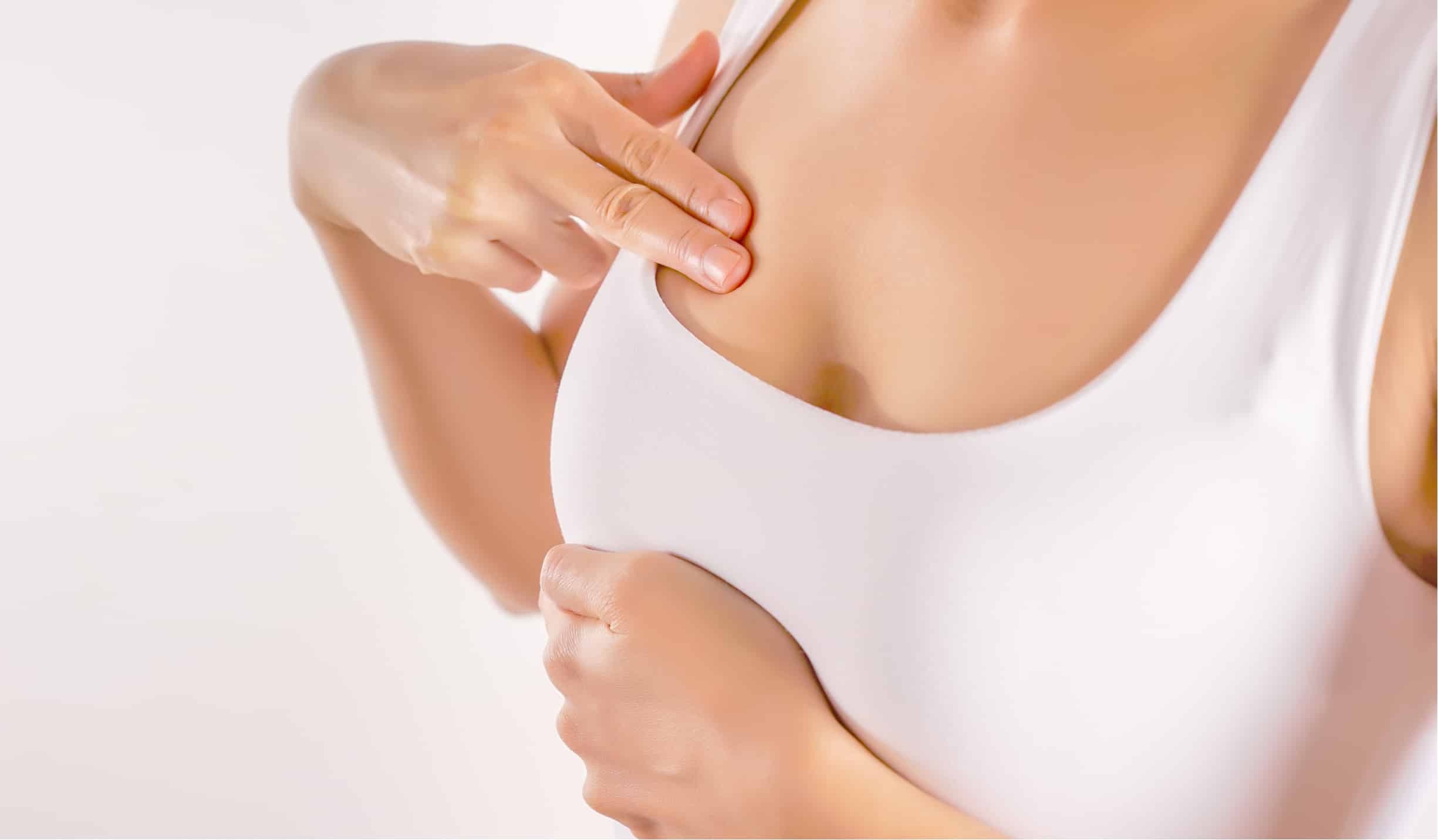October is Breast Cancer Awareness month. Here at Hess and Sandeen, we take breast health very seriously. 1 in 8 women will be diagnosed with breast cancer in their lifetime. Knowing what to look for can help you detect the disease early. This will give you the best chance at successful treatment. Most of the changes listed below are more often caused by something other than cancer. However, it is always better to take extra precautions and see a professional if you have any concerns.
Here are some of the common symptoms to watch out for:
New Mass or Breast Lump
One of the most common symptoms of breast cancer is a new lump or mass. An irregularly-shaped, painless, hard mass is more likely to be cancer. However, a cancerous lump can also be tender, rounded, or soft. Since this can vary, it is important to have any breast change, new lump, or mass checked by a professional.
Swollen or Tender Lymph Nodes
Sometimes breast cancer can spread to the lymph nodes even before the original tumor in the breast is large enough for you to notice it. If you experience tenderness or swelling under your arm or around your collarbone, you should have this examined by a healthcare provider immediately.
Swelling and Pain in All or Part of the Breast
Premenstrual syndrome (PMS) is one of the most common causes of breast swelling because of the increase of estrogen in your body. However, breast enlargement can also be a symptom of a rare but aggressive type of cancer called inflammatory breast cancer (IBC). This can cause swelling in one or both breasts even if there is no distinct lump. Often the swelling is caused by fluid build-up in the skin of the breasts. It is frequently accompanied by redness.
Skin Irritation or Dimpling
Even though lumps in the breast are the most common symptoms of mammary cancer, you should also be looking for changes in the appearance of your skin. While there are many things that could cause skin changes, skin irritation or dimpling is one sign of IBC, so it is usually a good idea to see a doctor if you notice this.
Nipple Changes or Discharge
As with changes of the skin, there are a number of things that can alter the appearance, texture, and shape of your nipple or areola. While some of these changes are normal, if your nipple or areola suddenly or unexpectedly changes, it may be a medical issue. You should see a healthcare professional if you notice nipple pain or itchiness, abnormal discharge, inverted or retracted nipples, or changes in size, texture, or color.
Know Yourself and Your Breast Cancer Risk Factors
Although many of these symptoms can be caused by other things besides breast cancer, it is crucial for you to be aware of any changes in your breasts. You should know how your breasts normally look and feel. It is important to give yourself frequent breast self-exams to check for any changes. This can help you detect breast cancer earlier, which greatly increases the survival rate of this disease.
Knowing what symptoms to look for is not a replacement for regular mammograms and other screening tests. These can help detect breast cancer in its early stages, even before symptoms appear.
It is also important for you to know if you have any risk factors. This may help you take preventive measures to reduce the likelihood of developing the disease. Risk factors include obesity, heavy drinking, and a sedentary lifestyle. Inherited genetic mutations such as BRCA, a family history of breast cancer, or taking some medications such as birth control pills can also increase your risk. This is by no means a complete list of risks and you should discuss your own individual risk factors with your doctor.
Breast Cancer Reconstruction With Hess and Sandeen
If you notice any of these symptoms, you should be examined by a healthcare provider who is skilled in diagnosing breast conditions. At Hess and Sandeen, we are here to help in the worst-case scenario where you are diagnosed with breast cancer. Our compassionate, patient-focused plastic surgeons will work with any of the doctors involved with your treatments and help you get through this difficult time. We perform mastectomies and reconstructive surgery.










